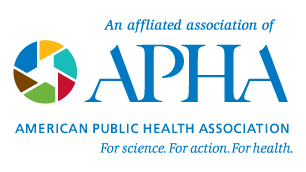|
OPHA Health Policy & Advocacy Committee
Senate Bill 536 Sponsored by Senators Hass and Atkinson and Representatives Cannon and Gilliam
Bill Summary
Plastic absorbs dangerous toxins from the environment. Wildlife mistakes plastic for food and eats it. Studies have shown that wildlife can’t digest plastics, and that toxins from plastics are absorbed into animal and marine wildlife tissues. “When fish and other animals mistake the plastic as food – and they frequently do – the toxic chemicals work their way up the food chain. This is not only potentially devastating to fish and wildlife, but to human health too.” (Surfrider Foundation, n.d.)
Plastic bags have become a “short term convenience with long term impacts” (Westcott, p. 5); they are “symbolic of a society in which we use things without thinking and then throw them away” (Williams, 2004). The bags waste natural resources in the production process, man-hours in the clean-up process of them, and financial resources for stores to offer them and governments to have to fund their removal from waterways, parks and other locations. Noah Heller writes that, “The City of Portland estimates plastic bags cost the city $2.3 million each year in street, storm drain, and sewer maintenance expenses.” Approximately one trillion plastic single-use bags are used annually around the world and in the United States alone, “Around 100 billion petroleum-based plastic bags are used each year... These disposable, toxic bags require a huge consumption of oil: the United States is collectively using about 12 million barrels of oil to produce the plastic bags that are used each year” (Heller, 2011). Oregon does not have the technology to recycle them and they do not decompose in landfills; currently, options for the bags include being littered, thrown away, improperly recycled or placed in the few bins available at various locations at stores to be appropriately disposed of.
2) Charges for paper bag option at checkout lines 4) Protects the environment, waterways, animals and people Oregon AFL-CIO Sierra Club and various grocery stores, environmental groups, and organizations
Name Address
Date
Dear Senator or Representative X,
I am writing to you to express the importance of Senate Bill 536 and to ask for your support in passing it through legislation. The convenience that single-use plastic bags provide to customers falls short of outweighing the environmental and potential human health costs of producing them for stores to distribute. Over one trillion single-use plastic bags are currently used worldwide and these bags take hundreds of years to decompose, contribute to the amount of waste in landfills, cause injury or death to wildlife and clog waterways. They are a likely source of dangerous toxins to humans. They are an expensive convenience item for companies to distribute and governments/cities to clean-up.
Senate Bill 536 would ban single-use plastic bags from being distributed at retail stores and impose a $.05 charge per paper bag given at stores; the paper bags must be from at least 40% recycled fibers. The exceptions to this ruling would be for pharmacies and restaurants who can still distribute plastic bags; stores in violation of this law can be fined up to $250.This bill would therefore encourage reusable bags at checkout lines, but not force the purchase of one on anybody. If passed, Oregon will be the first state in the nation to impose this type of law statewide.
In the City of Portland alone, estimates show that plastic bags “cost the city $2.3 million each year in street, storm drain, and sewer maintenance expenses. Plastic bags represent 30-40 percent of operating expenses for material recovery facilities to clean out the sorting machines” (Progressive Oregon, 2011). Oregon does not currently have the proper facilities to recycle plastic bags and this leaves the bags inevitably to be thrown into landfills, littered, or put in recycling receptacles that are not meant for the bags. Single-use plastic bags are a “short term convenience with long term impacts” (Queensland Parliamentary Library, 2010), they “are a waste of resources in that we use them once and throw them away, and there is absolutely no reason to have this one-usage approach to bags” (Caroline Williams, 2004).
Banning single-use plastic bags from being distributed at grocery stores would help save the environment and especially waterways from being clogged with bags and protect animals from the possibility of complications from ingesting the bags. If the bill passed the need for creating and/or purchasing technology in Oregon for recycling the bags would be diminished and landfills would be kept from being filled with plastic bags. The environment, waterways, animals, and people would all benefit from this bill passing.
Your support in passing this bill would be much appreciated. Thank you for your time and consideration of my request.
Sincerely,
Name
|

